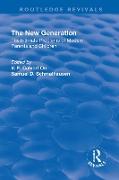Victor Francis Calverton was the pseudonym of George Goetz (1900-1940) an unaffiliated American left-radical writer and literary critic.
Calverton was born (named George Goetz), in Baltimore in 1900, the son of Charles and Ida Janette Geiger Goetz. He graduated with an AB from Johns Hopkins University in 1921. Calverton founded the Modern Quarterly, wrote 18 monographs and was editor of An Anthology of American Negro Literature (1929). Calverton married twice; his second wife was actress and social worker Nina Melville.
Calverton founded the Modern Quarterly, a politics and arts magazine which ran from 1923 to 1933. From 1933 until his death in 1940 it continued as The Modern Monthly. It was notable for publishing opposing views within the same issue and supporting the work of black intellectuals.
Bertrand Arthur William Russell, 3rd Earl Russell, OM, FRS (/ËrÊsÉl/; 18 May 1872 - 2 February 1970) was a British philosopher, logician, mathematician, historian, writer, social critic, political activist and Nobel laureate. At various points in his life he considered himself a liberal, a socialist, and a pacifist, but he also admitted that he had "never been any of these things, in any profound sense". He was born in Monmouthshire into one of the most prominent aristocratic families in the United Kingdom.
In the early 20th century, Russell led the British "revolt against idealism". He is considered one of the founders of analytic philosophy along with his predecessor Gottlob Frege, colleague G. E. Moore, and protégé Ludwig Wittgenstein. He is widely held to be one of the 20th century's premier logicians. With A. N. Whitehead he wrote Principia Mathematica, an attempt to create a logical basis for mathematics. His philosophical essay "On Denoting" has been considered a "paradigm of philosophy". His work has had a considerable influence on mathematics, logic, set theory, linguistics, artificial intelligence, cognitive science, computer science (see type theory and type system), and philosophy, especially the philosophy of language, epistemology, and metaphysics.
Russell mostly was a prominent anti-war activist; he championed anti-imperialism. Occasionally, he advocated preventive nuclear war, before the opportunity provided by the atomic monopoly had passed, and "welcomed with enthusiasm" world government. He went to prison for his pacifism during World War I. Later, he campaigned against Adolf Hitler, then criticised Stalinist totalitarianism, attacked the involvement of the United States in the Vietnam War, and was an outspoken proponent of nuclear disarmament. In 1950 Russell was awarded the Nobel Prize in Literature "in recognition of his varied and significant writings in which he champions humanitarian ideals and freedom of thought".


